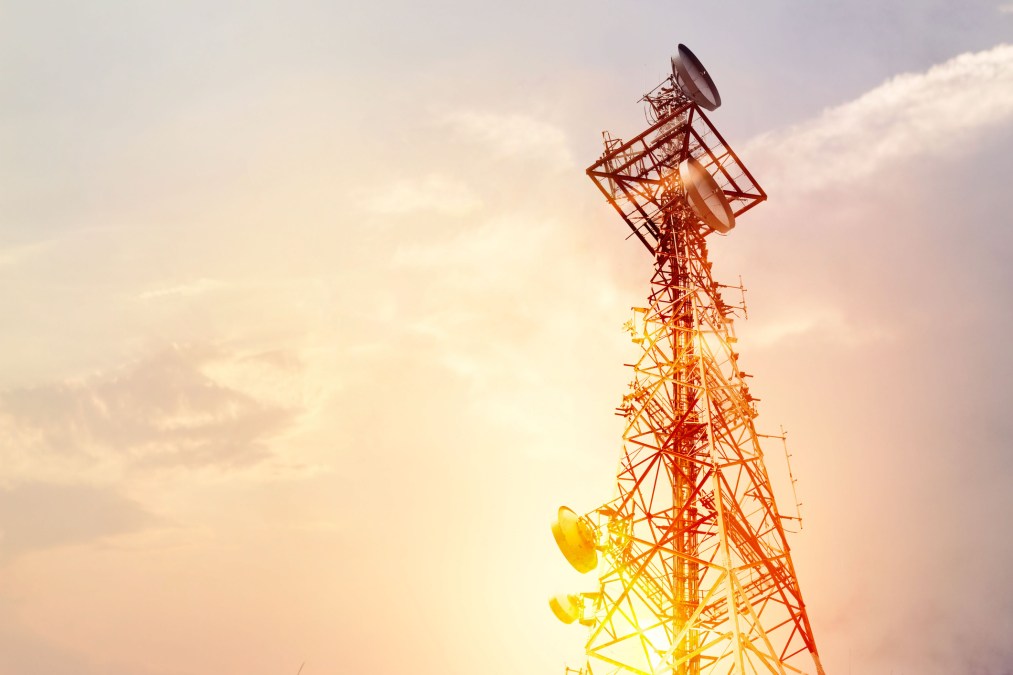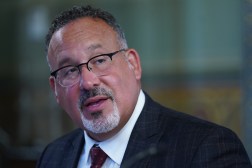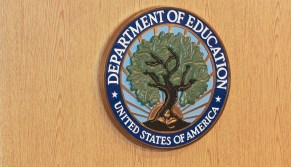Education Dept. pleads FCC not to repurpose wireless broadband service

The Federal Communications Commission is considering auctioning off wireless spectrum to the private sector that has traditionally been dedicated to educational institutions, but the Department of Education encouraged the agency last week to reconsider.
Jim Blew, an assistant secretary at the Education Department wrote in a letter Friday addressed to FCC Secretary Marlene H. Dortch that while he supports modernization of the FCC’s Educational Broadband Service, or EBS, the department wishes to use the wireless spectrum to “promote student achievement and preparation for global competitiveness.”
“The Department urges the Commission to maintain current eligibility requirements for EBS licenses to ensure the educational and public interest nature of the EBS spectrum is preserved,” Blew’s letter reads.
In a notice of proposed rulemaking issued May 2018, the FCC noted that large portions of the 2.5 GHz wireless spectrum available to educational institutions through EBS remain unused. This is in part because, with a few exceptions, the FCC has not issued new EBS licenses since 1995. As a solution, the FCC proposed a host of changes to how EBS licenses would be defined and administered, in large part, the commission said, to make way for next generation wireless technologies such as 5G.
The FCC is also considering changing its “local priority” rules, which give a “strong preference” to local license applicants originally considered by the FCC to be the “best authorities for evaluating their educational needs and the needs of others they propose to serve in their communities.”
Representatives from hundreds of educational organizations reacted last month by signing a petition against any FCC decision that would repurpose the EBS spectrum for non-educational needs.
Reg Leichty, founder of an educational law firm called Foresight Law and Policy, which represents some of the organizations that signed that petition, told EdScoop that many educational organizations are sensing this could become a missed opportunity to use the EBS spectrum if the decision doesn’t go their way.
“There was a sort of panic in the education community because after two decades there’s actually an opportunity to use the spectrum to connect more kids that are not connected,” Leichty said.
Rather than open EBS licenses to non-educational organizations, the Education Department suggested in its letter that the FCC instead update the EBS use requirements to reflect “effective, modern digital learning practices and shift the focus of what is considered an educational use from the amount of content delivered to who and how many people are being served.”
Under revised rules, EBS is anticipated to help rural communities currently underserved by commercial broadband providers. The FCC claims in its 2019 Broadband Deployment report that 21.3 million Americans lack internet access, though some internet-access advocates say the true figure is much higher.
The FCC’s proposal leans toward a model in which the under-used EBS spectrum could be made available to the private market to serve both educational institutions and their commercial customers, but Leichty said there would be no guarantee that license holders serve educational institutions.
“If the Commission decides to eliminate the educational nature of the Educational Broadband Service spectrum … the Department requests that the Commission delay its decision to allow additional time to examine the potential educational impact,” Blew’s letter concludes.
The FCC is also considering capping growth of the Universal Service Fund, which includes E-Rate broadband funding.
FCC commissioners are scheduled to testify before the Senate Committee on Commerce, Science, and Transportation later this week.




